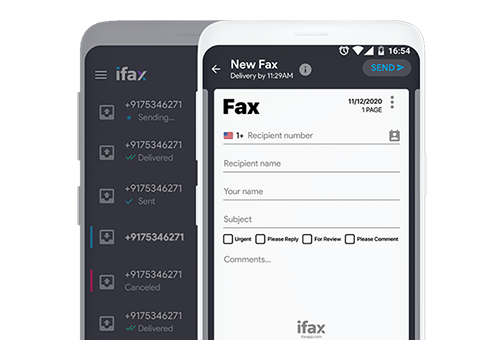Given today’s interconnected computer systems, various industries continue to tackle matters concerning interoperability and integration. The healthcare industry is no exemption. Healthcare interoperability allows healthcare providers to provide better patient care through timely and accurate access to relevant health information.
With the right approach, interoperability can benefit the healthcare sector in so many ways. Find out why interoperability over networked healthcare systems is important and why it is a must in today’s modern healthcare solutions.
Table of Contents
- What Is Interoperability in Healthcare?
- What Is an Example of Interoperability in Healthcare?
- Why Is Healthcare Interoperability Important?
- How Do You Achieve Interoperability in Healthcare?
- What Is Healthcare Interoperability Software?

What Is Interoperability in Healthcare?
Healthcare interoperability refers to the ability of an electronic healthcare system to communicate and readily exchange data with other computers or software from a different provider or vendor. Interoperability also makes it possible to access health data from various sectors, including pharmacies, laboratories, clinics, hospitals, and palliative care institutions.
Since interoperability involves the exchange of sensitive information, healthcare providers must comply with data standards to safeguard PHI (patient health information).
The HIMSS also classified health IT interoperability into four levels: foundational, structural, semantic, and organizational. These levels define the type of data exchange involved, with the highest level being the most crucial since it requires shared consent for integrated end-user processes and workflows.
What Is an Example of Interoperability in Healthcare?
A good example of interoperability in the healthcare setting is the facilitation of new patient admissions. By enabling interoperability among EHR systems through application programming interfaces, a quick search in the database will tell you whether the patient has an existing health record. You may then retrieve the information, update it with the recommended treatments, then send it to the department designated to administer the tests and medications. This seamless data exchange streamlines the process and improves patient care.

Why Is Healthcare Interoperability Important?
In healthcare, interoperability ensures data integrity. Here are five compelling reasons why healthcare interoperability is important:
1.) Eliminates inefficiencies.
Interoperability among healthcare systems helps eliminate inefficiencies by streamlining the work process. Instead of doing things the roundabout way, healthcare professionals can effectively determine the possible cause of the patient’s problems and recommend the appropriate treatment. This kind of approach is crucial for situations requiring urgent and emergency care.
2.) Easy access to information.
Ready access to a patient’s health records allows healthcare professionals to obtain any information necessary for making informed decisions. Easy access to information enables medical providers to decide accordingly, especially when the patient fails to provide accurate information about his medications or treatment history.
3.) Improved treatment plans and care options.
Having detailed access to the patient’s health records allows healthcare providers to think of better treatment plans and interventions. For example, integrating EHR information into a PMS (pharmacy management software) makes it easier for pharmacists to check whether the medication could cause any potential issues and adverse effects.
4.) It improves the patient’s journey.
Interoperability allows healthcare providers to better engage with patients and improve their adherence towards treatment and medications. For example, a patient may have trouble recalling past health issues during the initial consultation. Having ready access to EHR reduces the time spent on assessment so the healthcare provider can focus more on testing and diagnosis.
5.) Safe and seamless care transitions.
Healthcare interoperability is crucial in the treatment and management of patients with chronic illnesses. The transition of care usually happens when a patient moves from one care setting to another. Having ready access to the patient’s EHR ensures a seamless transition through effective coordination and safe patient transfers.
How Do You Achieve Interoperability in Healthcare?
Despite today’s interconnected systems, achieving full interoperability remains a challenge. Even so, various steps can be taken to improve healthcare interoperability, such as choosing a robust hospital management solution that allows seamless integration. Another way to achieve interoperability is to choose an all-in-one solution that supports the ready exchange of information across multiple platforms and organizations.
What Is Healthcare Interoperability Software?
A healthcare interoperability software is any healthcare management software capable of exchanging data with other systems or platforms. It can be an EHR, EMR, or medical billing software that allows seamless app integrations.
Speaking of which, many healthcare providers still use fax to transmit health records. Interoperability allows the seamless integration of fax functions into any existing EHR or EMR system. For this to be possible, both systems must support integration. iFax, for example, is an online fax solution that supports integration.
iFax, through its API, allows seamless integration to any existing healthcare or clinic management software. Doing so enables you to send and receive faxes directly from your EHR or EMR software. Being able to fax directly from any electronic healthcare software offers many advantages. Aside from being a legally acceptable method for transmitting ePHI (electronic protected health information), faxing allows healthcare providers to send and receive HIPAA-compliant documents without the costly operating expenses.
With iFax, you can send and receive faxes over the Internet even without connecting to a phone line or dedicated fax server. Additionally, our cloud-based fax service offers you these key advantages:
- Accessible: You can fax using your existing app or software. You can even use your email to send faxes to any local or international fax number.
- Cross-Functional: Keep your fax records up to date while working together with people from other departments or teams. iFax will automatically sync your documents across platforms keeping your records accurate and consistent.
- Cost-Efficient: Save on operating expenses by switching to sustainable paperless faxing. With iFax, you can fax for as low as $1.99 per page. You don’t even need an account to get started.

In a Nutshell
Interoperability in healthcare systems allows seamless processing of sensitive health information across different departments and organizations. It aims to make ePHI readily accessible so that healthcare organizations and medical providers can come up with better ways to improve patient outcomes and satisfaction.
Are you looking for a secure and reliable way to send HIPAA-compliant faxes? Use iFax. Our online fax service is fully capable of safeguarding your most sensitive information so you can stay compliant while getting huge savings on high-volume fax transmissions. Start faxing today!







